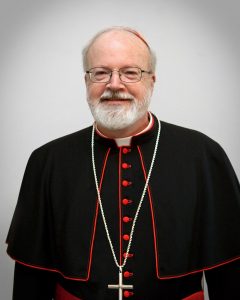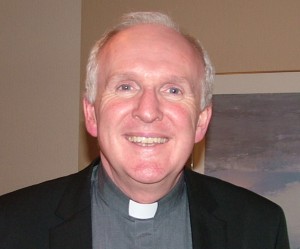
By Susan Gately - 17 August, 2018

Boston Cardinal Sean P. O’Malley. photo by Gregory L. Tracy/The Pilot.
Cardinal Sean P. O’Malley, one of the Holy See’s key advisers on the abuse of children by priests, has withdrawn from the World Meeting of Families where he was to chair a debate on Safeguarding Children and Vulnerable Adults, sharing the podium with, among others, Marie Collins, a survivor of abuse.
On Wednesday, it was announced that the Cardinal would not be able to attend, as “important matters pertaining to the pastoral care of St John’s Seminary in the Archdiocese of Boston and the seminarians enrolled in the formation program there require the Cardinal’s personal attention and presence”.
The announcement came a day after a grand jury report showed that Catholic officials in Pennsylvania systematically covered up the molestation of more than 1,000 children over a 70-year period by more than 300 priests.
The report detailed the abuse, saying there was a chronic failure by six of the eight Pennsylvania dioceses to protect young victims.
Speaking at an annual Mass at a Mass rock in Kileedy in Limerick on Thursday, Bishop Brendan Leahy said the Church needed “to acknowledge the dark aspects of our Church’s history that have come to light especially in recent decades”.
The visit of Pope Francis to Ireland next week, could be a “pivotal moment” for the Church and society “if we know how to grasp the moment,” said the Bishop of Limerick. It would be a crossroads, he said, showing three directions in which to look.
Firstly, was to look to the past, acknowledging the good and bad. Among the good things are the “initiatives established by pioneering Catholic men and women of the 19th century – schools, hospitals and works of outreach to people in need.
“But, then, we need to acknowledge the dark aspects of our Church’s history that have come to light especially in recent decades – a clericalism that ended up confusing power and ministry, the sexual abuse of minors by clergy and religious that did untold life-long damage to victims, the violent and repressive treatment by church representatives of young people sent to the State’s reformatory institutions, the dark experience of vulnerable women in places meant to be residences of refuge. Sadly, as has been highlighted, cover-up, wilful or otherwise, and mismanagement compounded the damage, adding to our shame.”
To prepare spiritually for the Pope’s coming, the Bishop of Limerick suggested that everyone in the Church should make an act of reparation – to have “a desire to want to ‘repair’ the Church first of all by seeking forgiveness for the sins of the past” and praying “Brothers and sisters in Christ who have been wounded by my deeds, have mercy on me”.

Bishop Brendan Leahy
As well as needing to pray for those who have been wounded, said Bishop Leahy, we need to keep listening and to learn from them how to clarify and repair our Church.
The second direction at the crossroads was to look around and be pro-active in repairing the Church today. “What’s most important in the Church is not this or that issue or this or that structure. What matters most is love. Each of us builds the Church through putting into practice the art of loving the Gospel teaches. Sometimes love is seen only as sentiment or in terms of morality. But love is at the heart of the Church. Indeed, one of the definitions of the Church is ‘love for one another’.”
The Bishop concluded his address by appealing to people to look to the future with hope. Often, the Catholic faith has been reduced to a caricature of merely going to Mass. “Catholic faith is something much more alive and dynamic. It is about discovering the true freedom that comes from following Jesus who makes us really free. It is about following, day by day, God the Father’s unique plan for each one of us and for our world in our small and big decisions.”